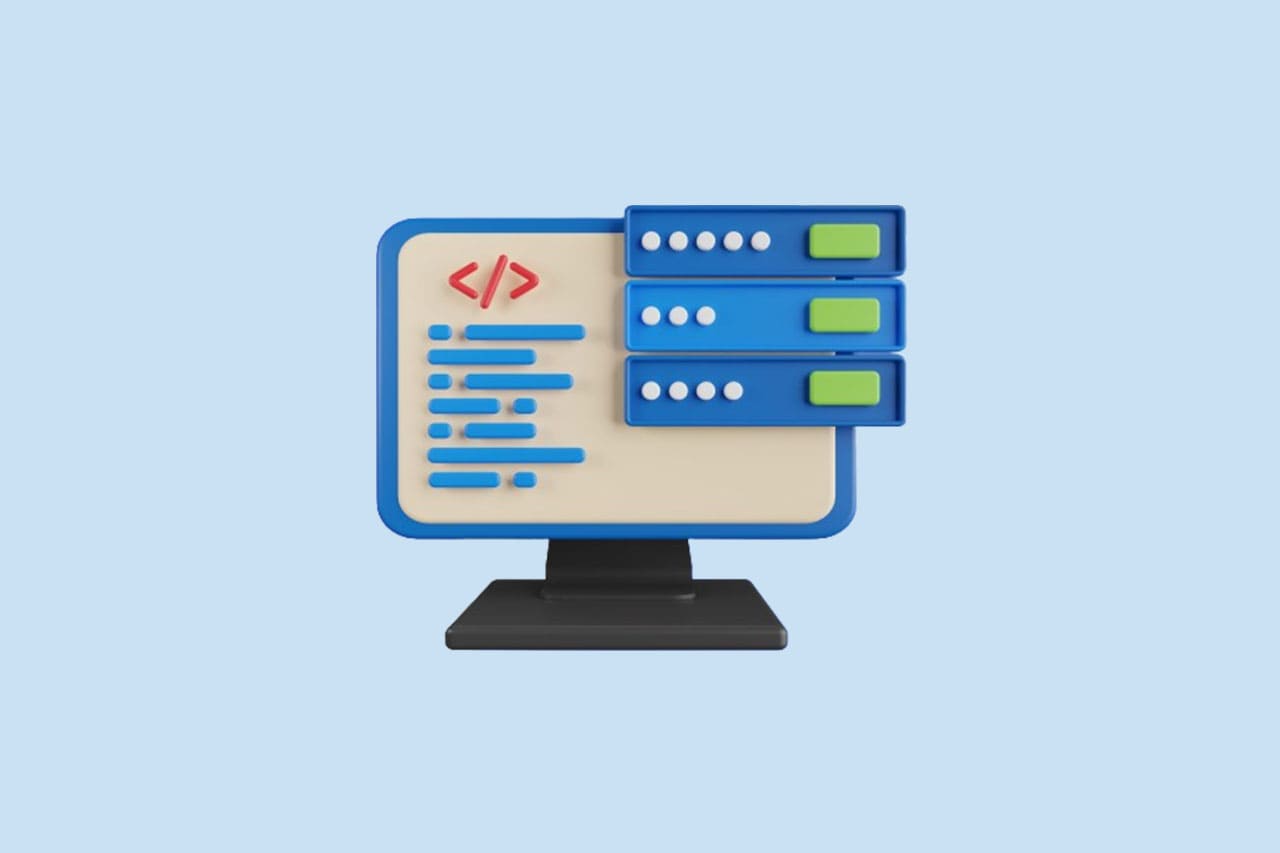Top 5 Best Practices & Future Trends for Using HRMS in Recruitment for 2023

Introduction
The blog focuses on the growing importance of Human Resource Management Systems (HRMS) in transforming recruitment methods. Human resource management software (HRMS) is a software system that automates and streamlines numerous HR processes, such as personnel data management, payroll processing, and recruitment.
The job market has become increasingly competitive in recent years, and recruiters are finding it difficult to attract and retain top personnel. As a result, firms are turning to human resource management systems (HRMS) to expedite their hiring procedures, improve candidate experience, and improve overall recruitment outcomes. Human resource management systems (HRMS) can assist recruiters in sourcing, screening, and shortlisting prospects, as well as tracking candidate progress and evaluating recruiting data.
HRMS may also give a more personalized and efficient candidate experience by answering frequently asked questions with chatbots, scheduling interviews, and delivering real-time feedback. These features not only improve the candidate experience but also save time and resources for recruiters.
Overall, HRMS is becoming more essential in recruiting because of its ability to improve recruitment outcomes, increase efficiency, and improve applicant experience. HRMS is projected to continue to revolutionize recruitment procedures, with more firms adopting these technologies to remain competitive in the employment market.
The Current State of Recruitment
Recruiting excellent personnel can be a difficult and time-consuming process for businesses. Some of the difficulties that businesses experience when recruiting candidates are as follows:
- Increased competition: With the rise of the gig economy and remote employment, businesses are now fighting for top talent. This implies businesses must differentiate themselves from their competition by providing appealing benefits and compensation packages.
- Skill shortages: Many businesses are having difficulty finding applicants with the appropriate skills and expertise to fill employment openings. This is especially true in businesses where the demand for competent personnel outnumbers the supply.
- Bias: Whether conscious or unconscious, bias plagues traditional recruitment tactics. As a result, businesses may overlook qualified candidates or make poor recruiting judgments.
- Expensive: Recruitment may be costly, especially if organizations use traditional tactics such as job postings, recruiters, and career fairs. These approaches can be time-consuming, and organizations may have to pay recruiters fees or commissions.
Traditional recruitment methods’ limitations exacerbate these difficulties. Traditional approaches such as job ads, recruitment firms, and career fairs have a number of disadvantages:
- Limited reach: Job listings and career fairs have a limited reach, and businesses may miss out on potential applicants who are not actively looking for new opportunities.
- Time-consuming: Traditional recruitment procedures can be time-consuming, particularly if organizations receive a large number of applications or must perform many rounds of interviews.
- Inefficiency: Traditional recruitment techniques are frequently inefficient, with recruiters going through applicants and performing initial interviews.
- Lack of data: Traditional recruitment approaches frequently lack the ability to track and evaluate recruitment data, making data-driven hiring decisions challenging for businesses.
To summarize, the current situation of recruitment is marked by a number of issues, including rising competitiveness, and talent shortages, bias, and high costs. Traditional methods of recruitment have drawbacks such as restricted reach, inefficiency, and a lack of data. These challenges and limitations have led to the adoption of new technologies, such as HRMS to revolutionize recruitment practices.
How HRMS is Changing the Game
When it comes to recruitment techniques, HRMS (Human Resource Management Systems) are changing the game. Human resource management software (HRMS) is a software system that automates and streamlines numerous HR processes, such as personnel data management, payroll processing, and recruitment.
Some of the advantages of using HRMS for recruitment include:

- Automated job posting: HRMS can automatically post job opportunities on multiple job boards and social media platforms, boosting the reach of job advertisements and saving recruiters time.
- Resume parsing: HRMS can automatically scan resumes and extract key information like as job experience and education, allowing recruiters to assess applications and discover potential candidates more quickly.
- Candidate tracking: HRMS can track applicants from initial application to hiring decision, making it easier for recruiters to handle candidate interactions and keep track of candidate progress.
- Interview scheduling: Human resource management systems (HRMS) can automate interview scheduling, removing the need for manual scheduling and lowering the risk of scheduling conflicts.
- Improved candidate experience: Using chatbots to answer frequently asked questions, scheduling interviews, and delivering real-time feedback, HRMS may provide a more personalized and efficient candidate experience. These features not only improve the candidate experience but also save time and resources for recruiters.
- Enhanced recruiting analytics: HRMS can track and analyze recruitment data, giving recruiters insights into parameters like time-to-hire and cost-per-hire. These insights can assist recruiters in making data-driven hiring decisions and optimizing their hiring procedures.
In all, human resource management systems (HRMS) are altering recruitment methods by automating time-consuming tasks, improving the candidate experience, and providing recruiters with useful recruitment insights. The features of HRMS, such as automated job posting, resume parsing, candidate tracking, and interview scheduling, can streamline recruitment processes, reduce bias, and improve the quality of hiring decisions.
Emerging Trends in Recruitment
Human Resource Management Systems (HRMS) are enabling new recruitment trends such as virtual recruiting events, gamification, and video interviews.
Let’s look more closely at how HRMS is supporting these trends:
- Virtual recruiting events: By offering online venues for recruiters to communicate with candidates, HRMS may support virtual recruiting events. Virtual job fairs, webinars, and online networking events are examples of such events. HRMS systems can also automate registration, manage event logistics, and track attendance.
- Gamification: Gamification can be included in the recruitment process by employing online games and simulations to test candidates’ skills and talents. This can result in a more interesting and participatory applicant experience, as well as important insights into candidates’ strengths and limitations for recruiters.
- Video interviews: HRMS can help recruiters conduct video interviews with prospects by offering online platforms for them to do so. Video interviews can save time and money while also giving candidates a more personalized experience. HRMS can also automate scheduling, removing the need for manual scheduling.
In conclusion, HRMS is allowing new recruitment trends by offering online platforms for virtual recruiting events, introducing gamification into the recruitment process, and facilitating video interviews. These trends have the potential to increase the quality of hiring decisions, improve the applicant experience, and offer recruiters useful information about candidates’ skills and abilities. As the job market becomes increasingly competitive, it is expected that these trends will continue to grow in popularity and that HRMS will play an increasingly important role in enabling them.
The Future of Recruitment with HRMS
With the continuing development and integration of emerging technologies such as artificial intelligence, machine learning, and blockchain, the future of recruitment with HRMS (Human Resource Management Systems) is projected to grow dramatically in the next few years.
Here are some probable future impacts and expectations for HRMS in recruitment:
- Artificial Intelligence (AI): AI can help with recruitment by automating tedious processes, offering insights into candidate data, and decreasing hiring bias. For example, AI may evaluate applications and job advertisements to choose the best candidate for a position, provide interview questions, and even conduct preliminary interviews.
- Machine Learning (ML): Machine Learning (ML) can assist HRMS systems in learning from data and making more accurate predictions, such as forecasting which candidates are most likely to accept a job offer. It can also assist HRMS in identifying patterns and trends in recruiting data and using that information to optimize the hiring process.
- Blockchain technology: Blockchain technology can assist HRMS in verifying and validating candidate information like as work history and educational credentials. This can lower the likelihood of fraudulent claims and make the hiring process more safe and transparent.
- Improved Candidate Experience: HRMS is predicted to expand further in order to improve the applicant experience, such as using virtual reality to deliver immersive job previews and utilizing chatbots to provide real-time feedback and support.
- Data-driven Recruitment: As HRMS systems improve, recruiters should expect more beneficial insights into recruitment data, such as finding the most successful recruitment sources and best-performing recruitment campaigns.
In general, developing technologies such as artificial intelligence, machine learning, and blockchain are projected to drive the future of recruitment using HRMS. These technologies are intended to increase the quality of hiring decisions, improve the candidate experience, and provide recruiters with useful recruitment analytics as they develop and adapt. As organizations battle for top talent in a highly competitive employment market, it is projected that HRMS will become an increasingly more significant tool for recruitment in the future years.
Best Practices for Using HRMS in Recruitment
Here are some recommended practices for recruiting with HRMS (Human Resource Management Systems):
- Choose the right HRMS provider: It is critical to select an HRMS provider that provides the features and capabilities required for your recruitment needs. Look for service providers who have worked with firms in your industry and have a track record of providing high-quality recruitment solutions.
- Integrate your HRMS with other recruitment tools: To get the most out of your HRMS, combine it with other recruitment tools like job boards, applicant tracking systems, and social media platforms. This can help to enhance data accuracy, speed the recruitment process, and deliver a more seamless candidate experience.
- Create a seamless candidate experience: HRMS can be used to provide a more personalized and engaging candidate experience. You can use HRMS, for example, to automate communications with candidates, such as sending automated email updates on the status of their applications. HRMS can also be used to present candidates with more information about your firm and the position for which they are seeking.
- Train your recruiters and hiring managers: To get the most out of your HRMS, train your recruiters and recruiting managers on how to use it successfully. This can aid in increasing productivity, reducing errors, and providing a more positive experience for both candidates and recruiters.
- Measure and improve on a continuous basis: HRMS can provide valuable data and insights on recruiting performance, such as time-to-hire and cost-per-hire. Utilize this data to regularly measure and enhance your recruitment process, such as identifying areas for improvement and optimizing recruitment campaigns.
Companies may make the most of their HRMS for recruiting by following these best practices, boosting the quality of their hiring decisions, improving the candidate experience, and getting useful insights into their recruitment performance.
Conclusion
In conclusion, HRMS (Human Resource Management Systems) are changing the way businesses approach recruitment by streamlining processes and making it easier to find and attract outstanding talent. HRMS may help recruiters make more educated decisions and provide a more personalized and engaging applicant experience by automating monotonous operations, analyzing data, and giving vital insights.
This article’s primary takeaways include:
- Traditional recruitment methods are limited and frequently fail to produce the outcomes that businesses require to remain competitive in today’s employment market.
- HRMS provides various recruitment features, including automated job posting, resume parsing, candidate tracking, and interview scheduling.
- AI, machine learning, and blockchain are emerging HRMS technologies that are expected to create substantial changes in recruitment in the future years.
- Best practices for using HRMS in recruiting include choosing the proper provider, integrating HRMS with other recruitment tools, and delivering a unified applicant experience.
Companies must use HRMS for recruitment in order to remain competitive and attract top personnel. They may streamline their recruitment processes, cut expenses, and obtain useful insights into their recruitment performance by doing so. Finally, HRMS can assist businesses in making better recruiting decisions and attracting the best individuals.
Have a look at the following blog to explore more about Top 7 HRMS Trends to Watch in 2023. Top 7 HRMS Trends to Watch in 2023




